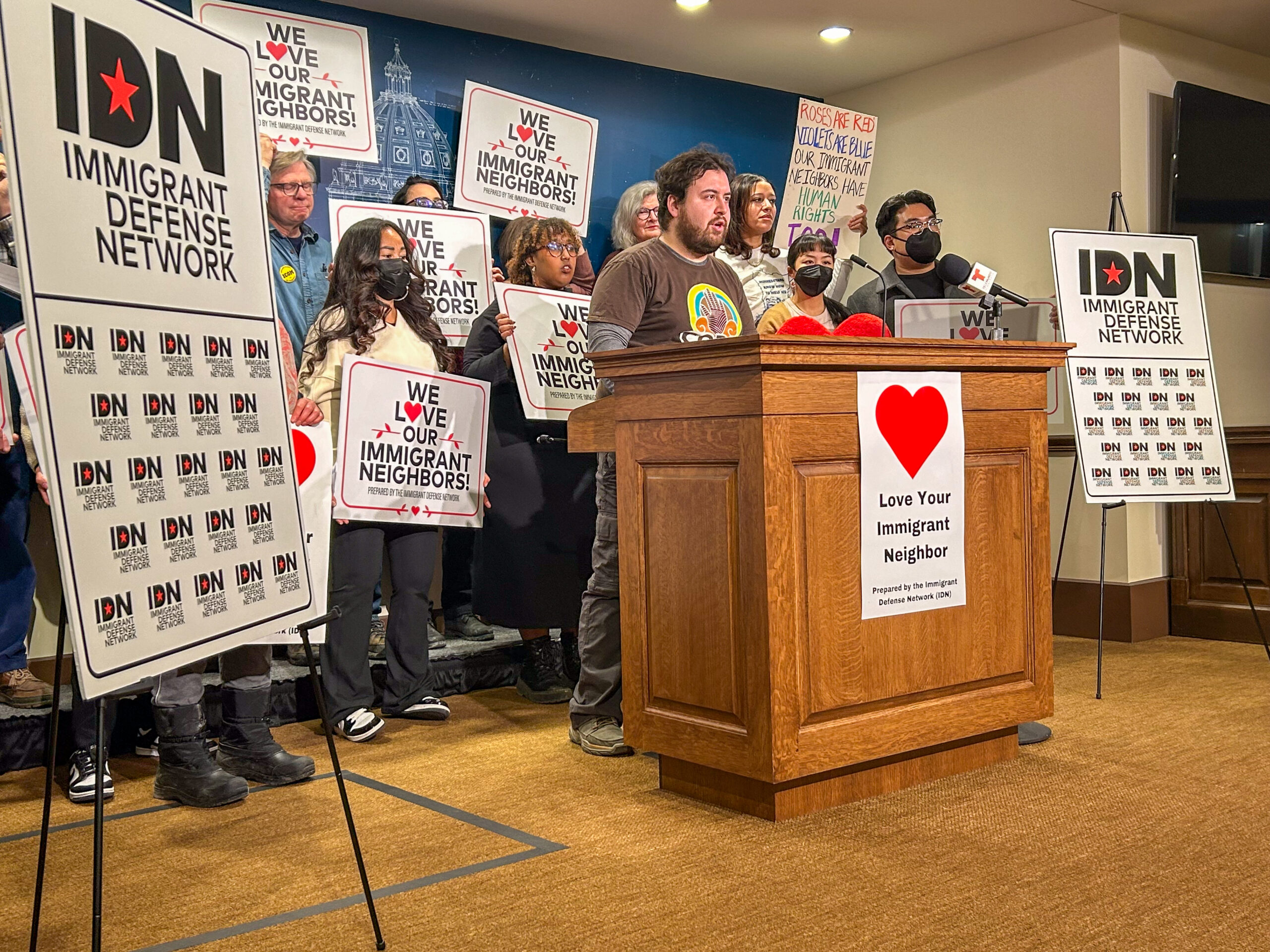As President Donald Trump proposes ending birthright citizenship, students born to immigrants consider how to move forward.
Byline: By Jack O’Connor
Some of those on the University of Minnesota campus who are born to immigrants say President Donald Trump’s efforts to end birthright citizenship are causing frustration and fear for their legal status.
Trump signed the “Protecting the Meaning and Value of American Citizenship” executive order on his first day of office on Jan. 20 to end birthright citizenship, an immigration practice that grants citizenship to nearly every person born in the U.S.
After 22 states filed lawsuits objecting to the order, it was paused by several judges. The administration is currently appealing to the U.S. Supreme Court.
Fourth-year University of Minnesota student Karen Castellanos, whose parents are from Mexico, said Trump’s executive order is frustrating to her as a second-generation immigrant. She added that she thinks the order is meant to limit citizenship to newer Americans who tend not to be white.
“It’s just completely something I can’t wrap my mind around,” Castellanos said. “I feel that there’s no genuine justification for that other than not wanting to have American citizens that aren’t white.”
If the U.S. Supreme Court sides with the federal government, anyone born in the U.S. to a mother who is in the country on a temporary legal status, or in the country unlawfully with a father who is not a U.S. citizen or lawful permanent resident, would no longer be a U.S. citizen, according to the executive order’s language.
While Trump may hold the highest office, several legal challenges stand in the way of the president’s executive order. The order challenges protections in the 14th Amendment, which created birthright citizenship in the U.S., and reads, “all persons born or naturalized in the United States, and subject to the jurisdiction thereof, are citizens of the United States.”
Recently graduated University student Genesis Maravilla, who identifies as a second-generation immigrant, said Trump’s questioning of birthright citizenship makes her scared for herself and her loved ones.
“With how quickly things have been happening, it just kind of gets me thinking, ‘Is this really possible?’” Maravilla said. “And if it does happen to occur, what does that mean for me and my siblings and people that are my friends that also have parents that are immigrants.”
Maravilla said she and her siblings have discussed what they would do if immigration customs enforcement were to come for any of them. Maravilla said her parents, who immigrated to Minnesota in the 1990s from Mexico as a way to create a better life for their future children, do not want to talk about worst-case scenarios.
“We don’t have plans in place if something were to happen, but I think (my parents) have a better peace of mind knowing that we have resources and connections that could possibly help us out,” Maravilla said.
University student C.G., who asked to only use their initials over fears about their parents’ legal status, said it is extremely sad to see their citizenship challenged when they have lived in the U.S. their entire life.
“(My parents) came to the U.S. so our family could have a better life, get an education, be citizens,” C.G. said. “I don’t know what I, or I guess people like me, did to deserve all this concern.”
Around 150,000 children are born in the U.S. annually to parents who do not have a legal status in the country, according to a lawsuit filed by 18 states. The lawsuit said the order risks these children becoming deportable and stateless, according to the legal complaint.
The executive order was originally set to go into effect on Feb. 19 before several federal judges across the nation put the order on pause.
University political science Professor Timothy Johnson, who specializes in the U.S. Supreme Court, said the current makeup of the Supreme Court, with its conservative majority, has ruled with Trump on recent constitutional matters, such as overturning Roe v. Wade or granting the president immunity from prosecution on actions taken while in office. But predictions are difficult in this case.
“When the Supreme Court ruled on the presidential immunity case, it really opened the door for a positive ruling on this. But again, the Supreme Court has a lot of discretion on their rulings, so it’s a coin flip on how they’ll decide this,” Johnson said.
Johnson said he expects the U.S. Supreme Court will hear the case at the start of the next judicial term in October.
Even if the Supreme Court rules against the executive order, Maravilla said it is scary knowing how close the federal government is to dismantling birthright citizenship. To her, it is a message to be prepared.
“There’s been a lot of fear-mongering, and I think that getting the right resources from community-based organizations and just knowing procedures if something were to happen is the best process to move forward,” Maravilla said.

